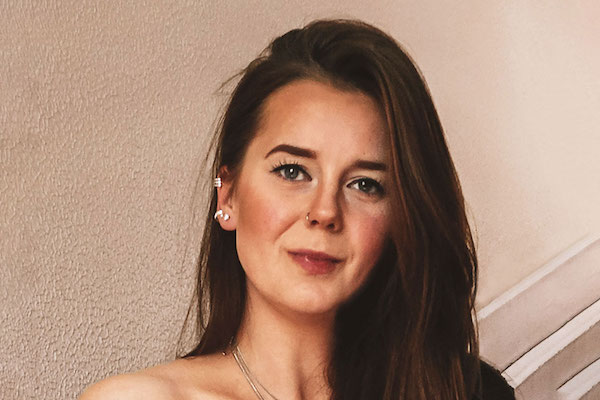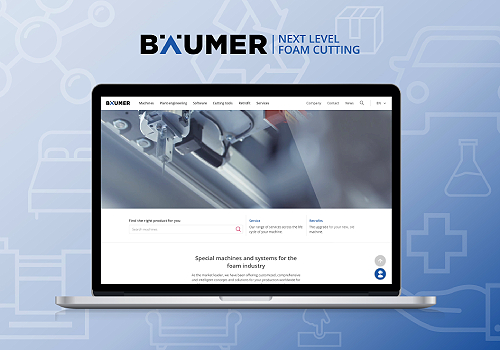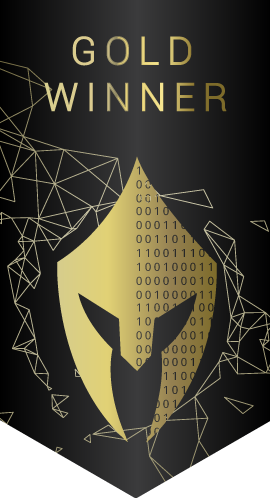
Interview
Michelle Hausen
Germany
Michelle Hausen is a UX Designer who loves to create experiences that are both functional and emotionally satisfying. Her journey started with graphic design, but she soon realized her passion for digital experiences. Michelle Hausen's projects include an educational hub for starting businesses and a non-profit project to raise awareness about U.S. national parks.
1 Please give us a brief bio of yourself and your background.
I am a User Experience Designer working for various industries and clients around the world. My journey began when I studied graphic design and visual communication. However, my first job was the turning point in my career. It was then that I noticed that I was drawn to the thought processes and data that go into designing digital experiences. This led me to start a career as a freelance UX designer. I have crafted and honed my skills in experience design, digital strategy, design thinking, and behavioral design. What drives me is not just creating functional products, but also tapping into the emotional desires of users, creating moments of excitement and happiness. In addition to my work with clients, I have also started two projects that are close to my heart. One of them is an educational hub for anyone who wants to start their own business, whether it's freelancing, location independent, or starting their own business. The second is a non-profit project to raise awareness and spark conversations about the conservation and preservation of U.S. national parks. It's a project that allows me to use my skills and creativity for a good cause. And that's something I think we should all strive for
2 What made you become/why did you choose to become a digital designer/artist?
Becoming a user experience designer wasn't a conscious decision I made; it evolved naturally at the time. Creativity has always been a part of who I am, and I've always had that spark of imagination. There's a story my mom loves to tell from my kindergarten days when my teacher told her she couldn't just throw away my leftover craft paper. My mom couldn't fathom why she should save a scrap of cardboard, but it turned out I was keeping it for Santa's beard! As I grew older and had to decide my future, I knew it had to be something creative. I also wanted the freedom to travel. So I started my journey in college, studying graphic design and visual communication. At first, I wasn't entirely sure if it was the right fit, but eventually, I found my love for user experience design. It may seem less creative on the surface because it involves data, research, interviews, and psychology, but I couldn't imagine doing anything else.
3 Tell us more about your business/company, job profile, and what you do.
I am a sole proprietor and focus on user experience design. I have had the privilege of working with a variety of clients around the world. My portfolio spans a variety of industries, from automotive to pharmaceuticals and science startups.
4 What’s your favorite kind of digital design and why?
UX design holds a special place in my heart. It requires not only empathy for users and businesses alike but also a deep understanding of psychology to understand what drives customer behavior. However, what excites me is the sheer breadth of opportunities within the digital realm. For example, my "Wild Places Project" has allowed me to delve into AI and experiment with AR filters. It's fascinating to use my UX skills and apply them to diverse fields. After all, our lives revolve around experiences.
5 To you, what makes a “good” design?
I have always been guided by the basic principle that "form follows function." While aesthetics are undoubtedly important, it's functionality and the ability to solve user problems and speak to their emotions that really define good design.
6 Describe your design style and its main characteristics.
My approach is flexible, adapting to the unique perspectives and requirements of users and clients in each project.
7 Tell us about your design process.
The beginning of each project involves a deep dive into the current status quo and envisioning what the future of the product could be. From there, the steps can vary, including research, product development, testing, and iterative refinement. The exact process is highly dependent on the project and the client's needs.
8 Where do you draw inspiration from?
I'm an avid traveler, and that's where I draw a lot of inspiration from. Experiencing different cultures, witnessing diverse lives, and exploring the wonders of nature ignite my creativity. However, when travel isn't an option, I turn to painting and keep a close eye on design trends. A really good way for me to get inspired is to think about new projects, solve my own problems or those of others, and write down any ideas I have. It gets my mind going.
9 What current trends in digital design (or really anything digital related) are you most excited about?
One of them is AI, of course. Everyone talks about it, and it's evolving so fast that you can't be sure what it's going to look like in just a few days. It's exciting and scary at the same time. Another exciting development for me is that people are moving away from the traditional path and trying to design their lives the way they want them to be. It's not necessarily a trend in the design industry alone, but as a UX designer, it is exciting to think about what we can do to help people achieve that.
10 Congratulations! As the winner of the 2023 Vega Awards, what does it mean to you and your company and team to receive this award distinction?
Winning the Vega Award is an incredible achievement for me. In the past, I had the misconception that such awards were reserved for large corporations. This year, I decided to test my luck and participate in the awards, and the result was nothing short of exhilarating.
11 Can you explain a bit about the winning work you entered into the 2023 Vega Awards, and why you chose to enter this project?
The project I entered was a website relaunch for the company Albrecht B
12 What was the biggest challenge with this project?
The most important challenges in this project were also our primary objectives. We had to address three key areas: 1. The extensive product range: Albrecht B
13 How has winning an Award developed your practice/career?
Winning the award has had a profound impact on me and my career. It broadened my horizons by breaking down the belief that only large corporations and internationally renowned organizations could win an award. Secondly, winning an award catapults my visibility and reputation within the design industry. It solidifies my credibility and positions me as a stand-out professional in my field.
14 What are your top three (3) favorite things about the digital industry?
Flexibility: The digital industry gives me the freedom to work from anywhere. Learning Culture: Continuous learning and a great community are essential to growing and staying competitive. Fast-paced: While one might argue that the current pace is too fast, I love how the digital industry is constantly changing. It allows me to try new things and be part of the latest developments.
15 What makes your country specifically, unique in the digital industry?
While Germany is a major economic player, we lag when it comes to digital transformation. But it also gives us all the opportunity to shape the future together. Due to my diverse international background, my approach to design is enriched by the various countries I have traveled to. Every cultural experience has shaped my perspective. This cross-cultural perspective has given me a broader approach to design, allowing me to create products that resonate with diverse audiences and meet their specific needs.
16 Where do you see the evolution of digital industry going over the next 5-10 years?
That's a really good question. It is hard to imagine if we'll end up in one of the sci-fi movies with flying cars and robots or if we will end up in an episode of Black Mirror. However, I believe AI and automation will grow and mature, leading to enhanced user experiences, streamlined processes, and personalized interactions. I think there will be positive as well as negative aspects to navigating. I also hope there will be a significant shift towards sustainable and ethical design practices. Instead of creating digital zombies, we should focus on enhancing and improving people's lives while still generating revenue.
17 If you were a student entering this industry or an aspiring Vega Award submitter, what advice would you give them?
I would like to offer three pieces of advice: 1. Believe in yourself. I know it's trivial, but we often forget about it. Especially for young people who are just starting in the industry, it is easy to get pushed around and believe everything anyone with more experience says. Step up for yourself and step up for your design decisions, but don't forget to back up your decisions with some kind of data. 2. Never stop learning. The digital industry is evolving rapidly, so staying up-to-date is essential. Attend workshops, engage with online communities, and keep improving your skills. 3. Always stay curious. Step out of your comfort zone, try new things, and embrace new challenges. This applies not only to your professional life but also to life in general.
18 What resources would you recommend to someone who wants to improve their skills in the digital industry?
There are plenty of resources out there, but one of the most valuable assets is your network. Connect with people, learn from each other, and build a supportive community. Beyond that, delve into psychology literature; it's a treasure trove of insights that can be applied to your daily work. Explore scientific papers and books on topics such as "Behavioral Decision Theory," "Exploring Happiness," "The Power of Habit," and "How Psychology Works."
19 Tell us something you have never told anyone else.
As I neared the end of my college journey, I was filled with self-doubt. I felt like I didn't learn enough to succeed in my career. At my first job, when I expressed my interest in user experience design, my former boss laughed at me and said, "Good luck with that." It was a tough time, but eventually I started believing in myself again. I am proud of where I am today and happy that I believed in myself rather than what others have told me. Always believe in yourself!
20 Who has inspired you in your life and why?
I am lucky to say that my parents inspired me the most in my life. Against all odds of any kind of problem the universe threw at them, they always came back stronger. My parents were the first to believe in me. They taught me to stand up for myself, that I can achieve anything I want, and that I will always be supported by them. They have been my biggest cheerleaders.
21 What is your key to success? Any parting words of wisdom?
For me, the keys to success are continuous learning, adaptability, and authenticity. Embrace change, stay open to new ideas, be honest, and never stop exploring new opportunities in your career.
22 Do you have anything else you would like to add to the interview?
Be curios, persistent, and adaptable.

